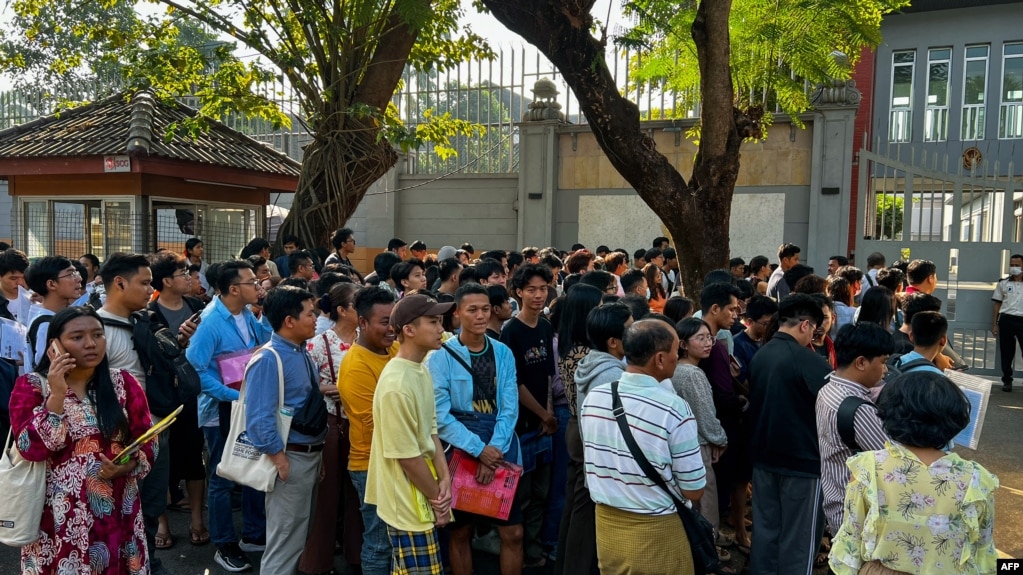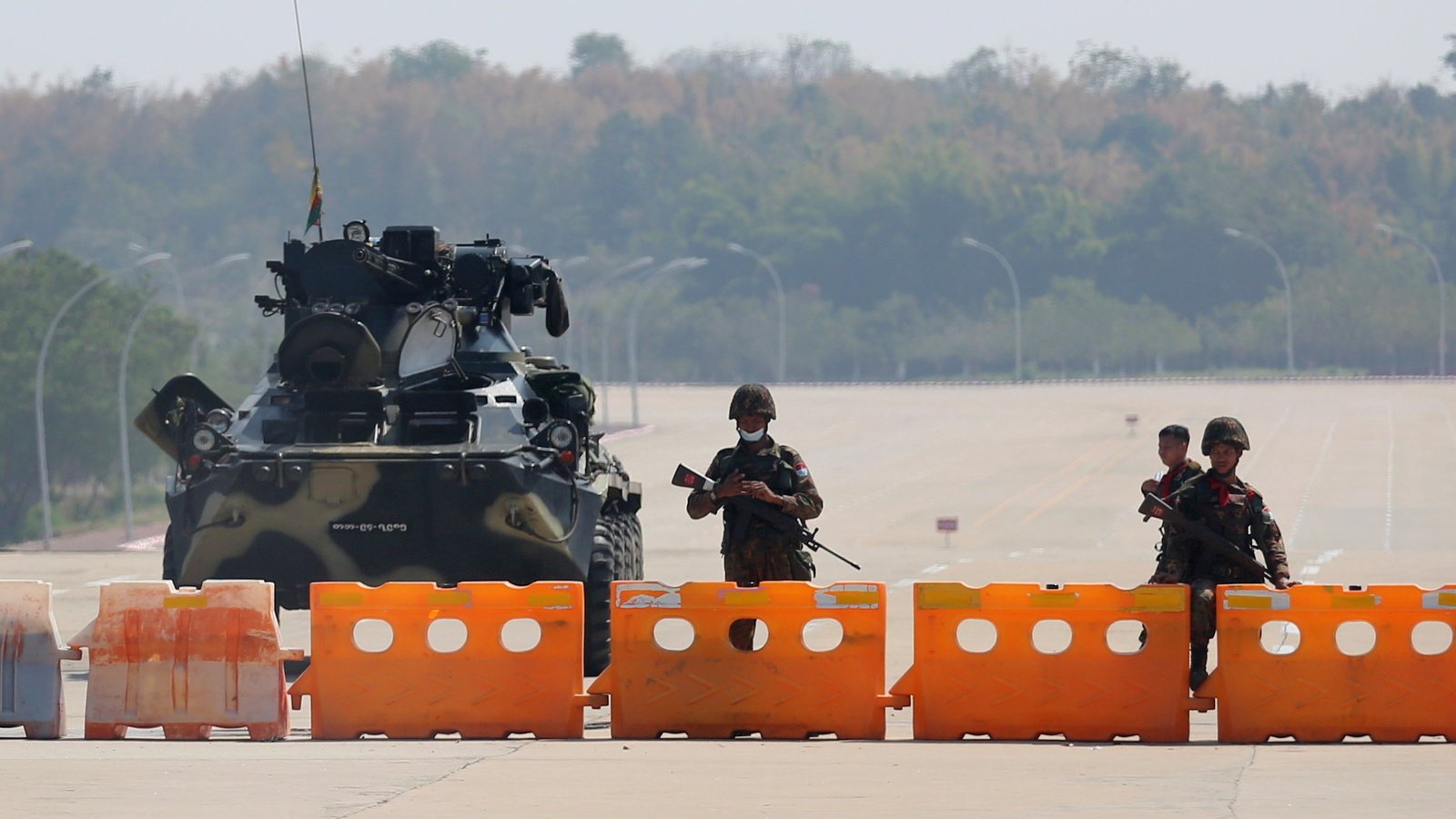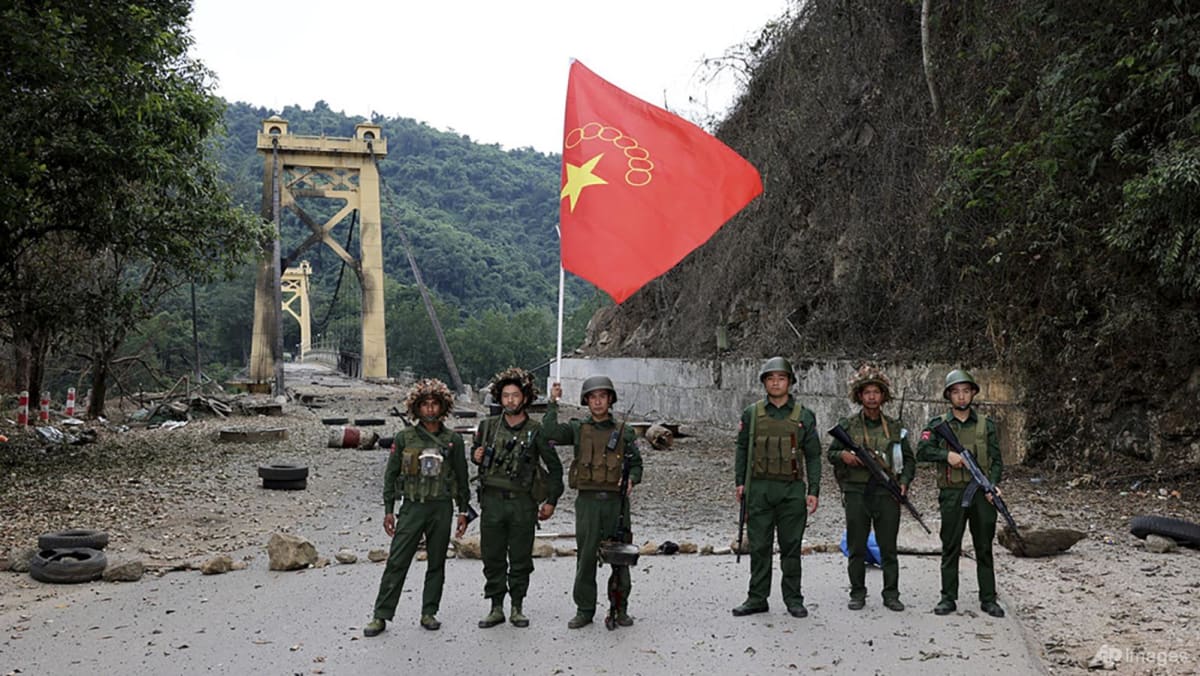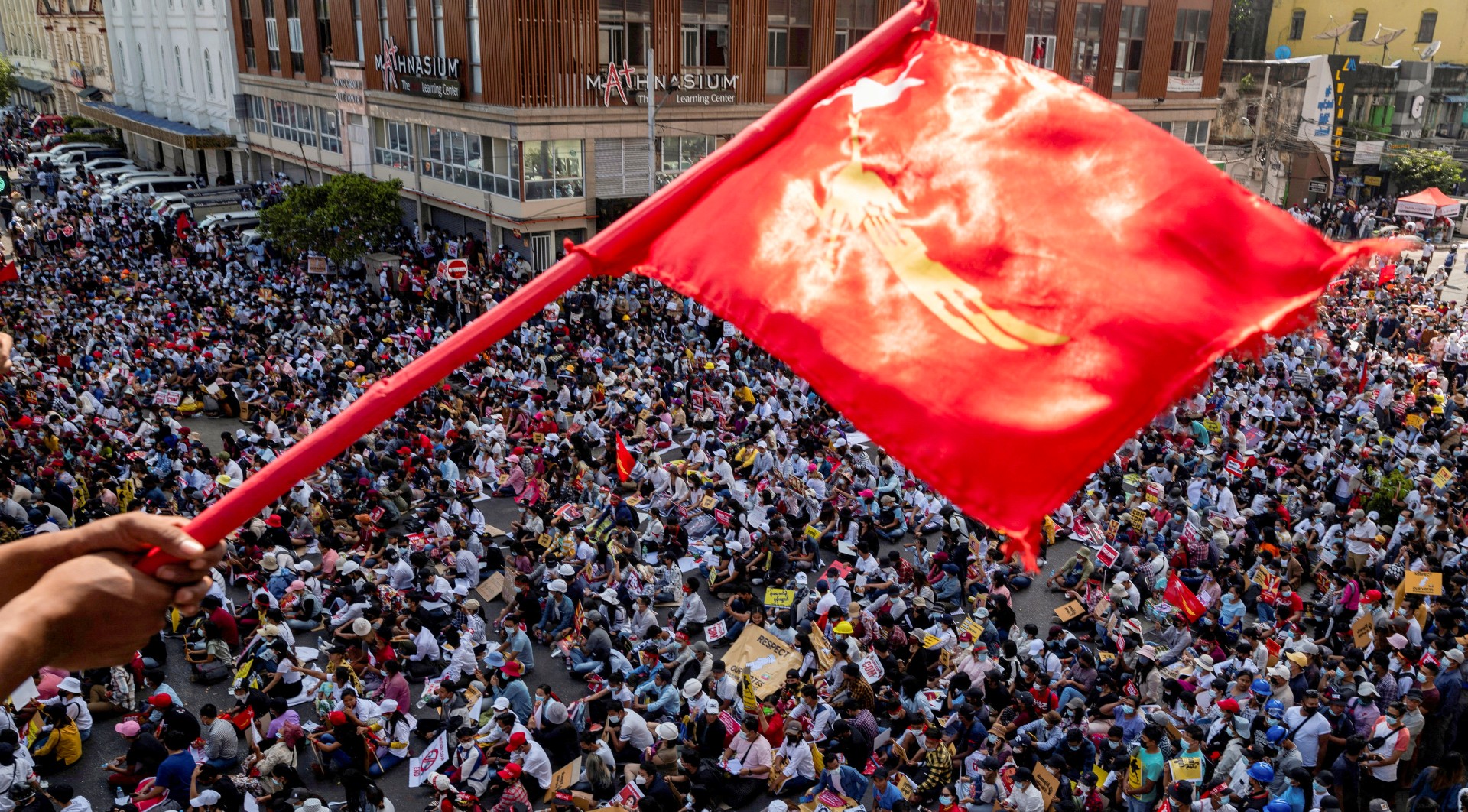The military junta now in control of the country has declared a military draft – to raise an army to fight the very people from whom those soldiers would be taken.
More than 1,000 individuals queued at the Thai embassy in Yangon on February 16 as young people sought to flee Myanmar after the junta said it would impose mandatory military service.
The military, facing continued resistance following its 2021 coup against an elected civilian government, announced on February 10 that it would enforce a law requiring all men aged 18 to 35 and women aged 18 to 27 to serve for at least two years. A higher age limit of 45 for men and 35 for women applies in certain professional categories such as medical doctors and engineers, and their term of service is three years.
New reports have suggested that the junta is now backpedaling on the requirement for women to be drafted.

“The Myanmar military currently has fewer than 100,000 troops,” Khun Bedu, the chairman of the Karenni Nationalities Defense Force, or KNDF, said. “Morale in the military is extremely low, and many soldiers don’t want to serve any longer. That is why the junta needs to force young people to join.”
According to Voice of America reporting, the KNDF is one of the most powerful ethnic armed resistance forces in Myanmar. It is fighting the junta in coordination with the National Unity Government, or NUG, a grouping of politicians and regional leaders who were ousted in the 2021 coup. The NUG views itself as a shadow government.
‘I DON’T WANT TO FIGHT’: LOOKING FOR A WAY OUT
The Thai embassy in Yangon has been inundated with young men and women seeking visas since the announcement of the “People’s Military Service Law.”
On February 16, an AFP journalist observed a queue of between 1,000 and 2,000 people near the mission in downtown Yangon – a stark increase compared to before the announcement.
The embassy stated it was issuing 400 numbered tickets daily to manage the queue.

Student Aung Phyo, 20, arrived at the embassy at 8 pm on February 15 and slept in his car before queuing around midnight. “We had to wait for three hours,” he said, “and police opened the security gate around 3 am, and we had to run to the front of the embassy to try to get places for a token,” said Aung Phyo, who, like others AFP spoke to, used a pseudonym due to safety concerns.
The law, authored by a previous junta in 2010, was never used, leaving uncertainties about its enforcement. Indeed, how do you force people to join an army to fight the very people who are comprising the drafted ranks of that army? Some have said that if they’re forced to fight, they will choose to fight the junta, not their fellow citizens.
The lack of information about the new military service scheme has fuelled anxiety among those who could be affected, with many saying simply, “I don’t want to fight.”
“When I heard of this military service law, I was shocked,” said student War War, 20. “Young people in Myanmar have lost their dreams, and this law hurts them and makes them even more afraid.”
Zaw Myo, 25, agreed that the announcement made the future only look bleaker in a country where the economy is already struggling due to the civil war.
Meanwhile, two women were killed on February 19 in a stampede outside a passport office in Mandalay, the second-largest city. The incident unfolded as thousands rushed to leave the country, seeking to evade enforcement of the junta’s military service law.
DEATH, DEFECTIONS, DESERTIONS: MILITARY LOSING GROUND
Junta spokesman Zaw Min Tun stated the military service system was needed “because of the situation happening in our country,” battling both PDFs (members of the People’s Defence Force, the armed wing of the National Unity Government that was formed in response to the junta’s coup) and other longstanding armed groups belonging to ethnic minorities.
Around 13 million people will be eligible to be called up, he said, though the military has capacity to train only 50,000 a year.

Mr Richard Horsey of the International Crisis Group said the military’s call-up announcement was “a measure of the dire state of the army – facing high casualties, weak recruitment, and a crisis of confidence throughout the ranks.”
Other experts agreed. “While wounded and increasingly desperate, the Myanmar military junta remains extremely dangerous,” Tom Andrews, United Nations Special Rapporteur for human rights in Myanmar, said in a statement. “Troop losses and recruitment challenges have become existential threats for the junta, which faces vigorous attacks on frontlines all across the country. As the junta forces young men and women into the military ranks, it has doubled down on its attacks on civilians using stockpiles of powerful weapons.”
Miemie Winn Byrd, a former U.S. Army lieutenant colonel and Myanmar-U.S. military relations expert, told VOA, “[The draft] is a desperate measure, and they’re resorting to this because they lack soldiers.
“They simply don’t have enough,” she continued. “This has been an ongoing issue, but it escalated since 2021 with the beginning of armed resistance against the military. There has been an unprecedented surge of defections recently, and the numbers of killed-in-action and casualties have been much higher on the military side than the resistance side.
“Additionally,” Byrd explained, “there have been mass unit-level surrenders, and they have missed their recruitment target every year since 2021, because they are highly unpopular. Our data say that over 90% of the Burmese people reject the military.”
The Council on Foreign Relations reports more directly, “Myanmar’s junta is losing the civil war.”
A BRIEF BACKGROUND
The Burmese civil war, also known as the Myanmar Spring Revolution or People’s Defensive War, is an ongoing conflict that intensified significantly following the 2021 military coup d’état and the subsequent crackdown on anti-coup protests. Thousands of soldiers, including six generals of the Tatmadaw, have surrendered without combat as of January 2024. Despite this, the Tatmadaw’s forces are described as “formidable and well-equipped,” aided by external allies and economic resources.

Since the coup in February 2021, humanitarian needs in Myanmar have soared, with 17.6 million people requiring assistance, 1.6 million internally displaced, and over 55,000 civilian buildings destroyed as of March 2023. Additionally, more than 40,000 individuals have fled to neighbouring countries such as India and Thailand.
By October 2023, the Tatmadaw controlled less than 40% of the country, although they claimed control over around two-thirds of the country’s 330 townships. In the same year, Chinland Defense Forces in Chin state captured most of the region, while Operation 1027 by anti-junta forces saw significant gains in the west. However, counter-offensives ensued, including Operation 1111 besieging the state capital of Loikaw and renewed conflicts in northern Rakhine and Chin states in October and November 2023.
The coup on February 1, 2021 saw the Tatmadaw remove the elected Myanmar government, detaining key figures like Aung San Suu Kyi. The exact pretext behind the coup remain unclear, although allegations of voter irregularities were cited. As noted above, the ensuing repression led to the formation of armed groups like the People’s Defence Force (PDF) under the National Unity Government (NUG), which declared a “defensive war” against the military regime in September 2021.

In the aftermath of the coup, opposition groups rallied around the NUG, launching offensives against the State Administration Council (SAC). By 2022, substantial but sparsely populated territory came under opposition control. Despite claims of stable control over a third of townships, independent observers suggest the number may be significantly lower, with as few as 72 out of 330 townships remaining under Tatmadaw control as of February 2023.
More than 4,500 people have been killed in the military’s crackdown on dissent since its February 2021 coup and more than 26,000 arrested, according to one local monitoring group. However, other groups put the figure much higher, saying that by July 2022, an estimated 23,521 people had been killed in the post-coup violence.
With the spectre of forced conscription looming on the horizon, it seems Myanmar’s long and difficult civil war could be poised to grow even worse.
Reporting from Voice of America, The Straits Times, CNN, Reuters, and the Council on Foreign Relations contributed to this article.
"ExpatGo welcomes and encourages comments, input, and divergent opinions. However, we kindly request that you use suitable language in your comments, and refrain from any sort of personal attack, hate speech, or disparaging rhetoric. Comments not in line with this are subject to removal from the site. "



















